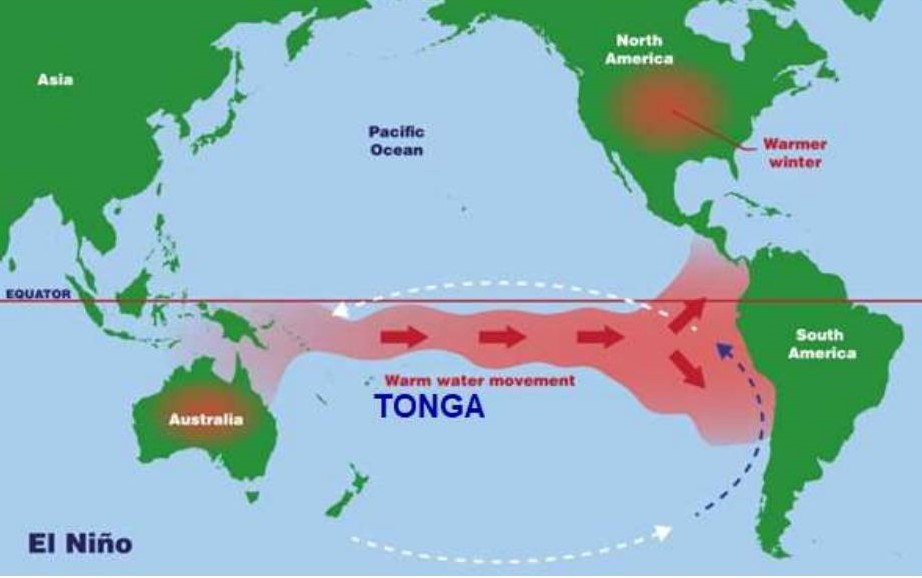An El Niño has been officially declared for Tonga this week, by the Tonga Meteorology Department, meaning that the Central and Eastern Pacific Ocean is now warmer than usual, expecting warmer temperatures, less rainfall, and more cyclones.
Tonga is forecast to experience warmer temperatures, less rainfall, and more cyclones in the next six months, from October 2023 to May 2024, Tonga MET stated and advised the public to take precautions from now onward for the next six months.
* Be updated with the latest El Niño Updates from the Meteorology Department.
*Use rainwater wisely, especially for small island communities dependent on rainwater and collect as much rainwater as possible when it rains.
*The health sector should prepare for disease outbreaks associated with warmer temperatures, drought and water contamination during cyclones events.
*The agriculture sector should deploy farming and livestock management methods associated with drought.
*The fisheries sector should prepare for a reduction in tuna and migratory fish species, stocks possible coral bleaching, and elevated chance of occurrence of algae bloom (red tides).
*The water sector should closely monitor ground water availability and quality.
*Emergency managers, including a village district emergency management committees, should activate preparatory phase of hazard response to drought and tropical cyclones.
*The infrastructure sector should prepare for a more active tropical cyclone season starting in November.
*Caregivers should prepare for warmer temperatures, access to clean water and a likely increase in cyclone evacuation
incidences in the next cyclone season.
*The utilities sectors should prepare for a more active cyclone season starting in November.
SOURCE: TONGA MET/PACNEWS














